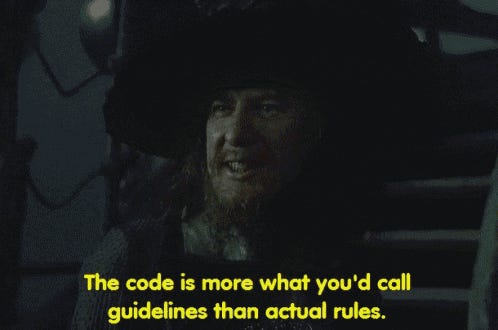Agency
Refusing to choose is a choice.
Excerpt: “The upsetting implication, and why I sometimes avoid recognizing my own agency, is that if I have a choice, then what I’m doing is actually what I chose to be doing. This can be kind of upsetting for one’s self-image.”
Profound. I'll have to return to this one.
It strikes me a higher-level decomposition of that Naval thread.
The opposite to reflexive agency is prompted agency - agency which only becomes available given some prompt to action. “That does seem like a problem. Have you tried solving it?” is my only-half-joking prompt I use with people: It’s something that highlights the failure of agency, in a way that makes people aware that action is an option available
... See moreDavid R. MacIver • Learning to exercise agency
Related to this, I’ve been thinking a lot about obsession, relentlessness, and near-unachievable goals. What makes someone able to reach heights others view as impossible? What makes some better suited for pursuits involving a singular focus?
The answer seems to be: a capacity for intensity. Intensity is a derivative of focus. The word intense
... See moreIsabel • Intensity - By Isabel - Mind Mine Intensity
People have an enormous capacity to make things happen. A combination of self-doubt, giving up too early, and not pushing hard enough prevents most people from ever reaching a... See more
Sam Altman • How to Be Successful
Meta on self and agency
Analysis paralysis takes different forms. Delaying action or preempting action are means of avoiding action.
2020 Letter to Shareholders
aboutamazon.com
To go with the flow is to seek equilibrium.
Excerpt from a remarkable final shareholder letter:
“Staving off death is a thing that you have to work at. Left to itself – and that is what it is when it dies – the body tends to revert to a state of equilibrium with its environment. If you measure some quantity such as the temperature, the acidity, the water content or the electrical potential in a living body, you will typically find that it is markedly different from the corresponding measure in the surroundings. Our bodies, for instance, are usually hotter than our surroundings, and in cold climates they have to work hard to maintain the differential. When we die the work stops, the temperature differential starts to disappear, and we end up the same temperature as our surroundings.”
